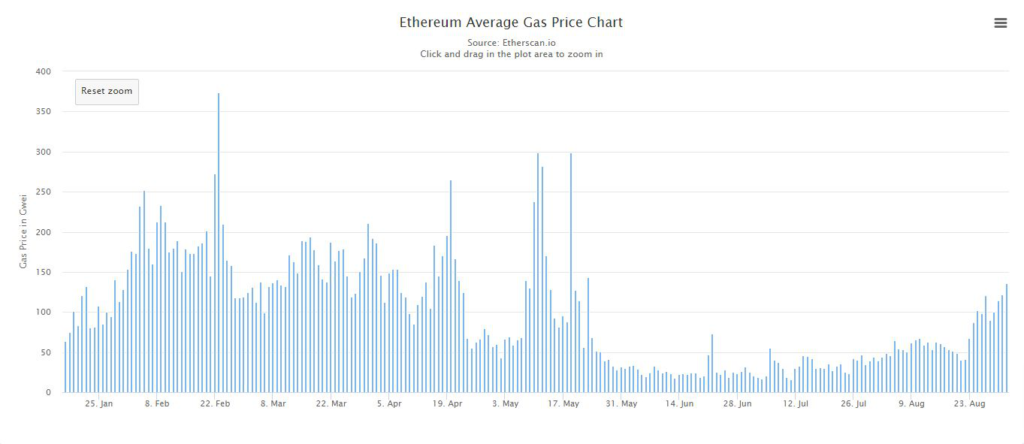(Bloomberg) — Bankrupt car-rental firms and Bitcoin-to-the-moon bets are falling out of fashion, as the retail army plunges into the digital art world like never before.
Thanks to collectibles like Pudgy Penguins and the Bored Ape Yacht Club going viral on social media, sales of non-fungible tokens on the largest marketplace, OpenSea, jumped to $3 billion in August. That’s more than 10 times the tally in the prior month, and the exchange is now routinely the no. 1 user of computing power on the Ethereum network.
Day traders are going all-in on computer-generated avatars, leaving rival speculative trades like mainstream cryptocurrencies and meme stocks in the dust. Even as Bitcoin rebounds to $50,000, tell-tale signs of euphoria from leverage to collateral are far below the May peak. Meanwhile Wall Street data suggests the zeal among the Robinhood crowd for trading U.S. equities and options is easing.
“A part of retail has migrated to NFTs,” said Martha Reyes, head of research at Bequant, a crypto prime brokerage. “Let’s face it, it’s just more fun to collect jpegs of primates and penguins.”
Read More: What’s an NFT? It’s What Makes GIFs Worth Big Bucks: QuickTake
NFTs are the latest explosion of speculative trading this year, turbocharged — depending on whom you ask — by stimulus checks, monetary easing, social media or the sheer boredom of pandemic life. The average price for the Bored Ape Yacht Club NFT — yes, literally a token of a monkey-themed avatar — has skyrocketed from 8.78 ETH on July 31 to 41.4 ETH, or about $156,368, while Pudgy Penguins has soared more than 100 times to 2.6 ETH.
That’s pushing up transaction costs on the Ethereum network which powers NFT activity, with the average so-called gas fee now at the highest since late May. Along the way, digital-token transactions are getting more expensive on the blockchain that birthed decentralized finance.
“As NFT activity commands ecosystem attention, gas prices have risen to daily levels that price out many retail traders,” Luke Posey, a researcher at analytics firm Glassnode, wrote in a Wednesday note.
While the NFT community enjoys its moment in the sun, Reddit-fueled trades that defined the meme-market mania earlier this year are looking positively quaint.
In the American stock market, small-option trades typically favored by Robinhood types recently dropped to just 18% of total volumes, the lowest since April 2020, UBS Group AG data show. Retail purchases of cash equities also cooled to the lowest in three months in August, according to Vanda Research, which tracks such flows.
Of course while their aggregate buying may have slowed, it doesn’t mean day traders have lost their sway. A new slate of meme stocks such as Skillz and Vinco Ventures have been rallying on the back of social media this week, while Vanda analysts also reckon retail buying might pick up into the final months of 2021.
Yet look at Bitcoin, once considered a fringe asset. Its rally from the June trough is failing to excite traders in the same way as the boom earlier this year.
On the Binance exchange, funding rates, or the cost of positioning in bullish futures, have risen only modestly to less than 4%, after plunging from as high as 39% in April, Bybt data show. The number of active addresses, an indication of transactions on the blockchain, is still 29% below its peak, according to Glassnode.
What’s more, just 54% of outstanding Bitcoin futures are now backed with Bitcoin itself as collateral — compared with 70% at the peak. With more traders using stablecoins pegged to fiat currencies, it’s the latest sign the speculative community is showing more restraint with the original cryptocurrency even as the NFT craze rages on.
“Open interest has been rising but is also well below its peak, as is the funding rate, suggesting a lack of froth,” said Reyes at Bequant, referring to Bitcoin trading.
More stories like this are available on bloomberg.com
©2021 Bloomberg L.P.











